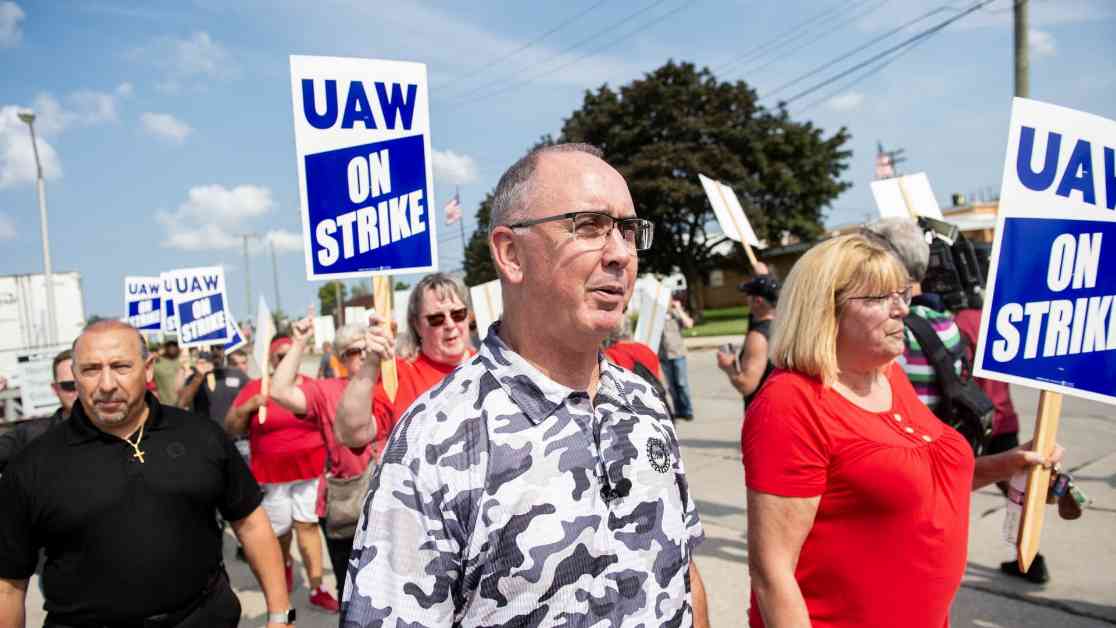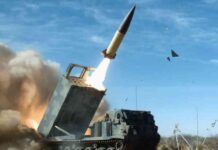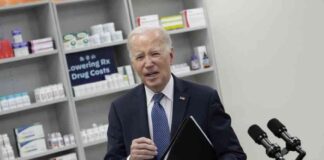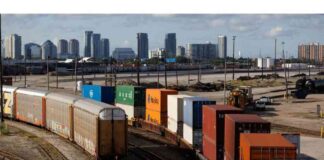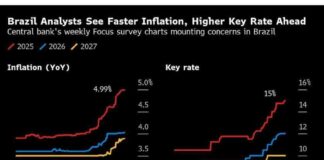The United Auto Workers (UAW) union is once again making headlines as potential strikes loom over Ford and Stellantis, a year after historic work stoppages rocked the U.S. automotive industry. UAW President Shawn Fain and members of the Mopar Parts Center Line, a Stellantis Parts Distribution Center in Center Line, Michigan, recently staged a picket outside the facility after walking off their jobs on September 22, 2023.
Strike Deadline at Ford Tool and Die Plant
The UAW recently announced a strike deadline at a Ford Motor tool and die plant that supports the automaker’s Rouge Complex near Detroit. This plant, one of two in the U.S. that produces Ford’s highly profitable F-150 pickup truck, is facing labor unrest as negotiations with the union have hit a standstill. The strike deadline is set for 11:59 p.m. on September 25, adding tension to the already strained relationship between Ford and the UAW.
Stellantis Strike Authorization Votes
In addition to the strike deadline at Ford, the UAW also announced plans to hold strike authorization votes at one or more local unions covering Stellantis plants in the U.S. This move is seen as a warning shot against Stellantis, focusing on union contracts and local issues at the facilities. It is worth noting that the union has not announced similar actions against General Motors, indicating that Ford and Stellantis are currently in the hot seat.
Local Contracts and National Agreements
UAW members are covered by both national agreements and local contracts, with the former addressing issues such as wages, bonuses, and benefits, while the latter are tailored to each specific facility. Local contracts have historically taken a long time to settle, sometimes extending beyond the terms of national agreements. Last year’s strikes highlighted the importance of local issues in labor negotiations, with workers pushing for job security, wage parity, and improved work rules.
Impact of Strikes on Automotive Industry
A strike at a supporting facility for an assembly plant can have a significant impact on vehicle production if the automaker is unable to make contingency plans for parts. With the automotive industry already facing supply chain challenges, any disruption in production due to strikes could further exacerbate the situation. Both Ford and Stellantis are closely monitoring the situation and engaging in negotiations with the union to reach a resolution before the strike deadlines.
Negotiations and Controversies
Ford stated that negotiations with the union are ongoing, emphasizing their commitment to reaching an agreement with UAW Local 600 at the Dearborn Tool & Die plant. On the other hand, Stellantis has been at odds with the UAW, facing accusations of unfair labor practices and refusal to provide relevant information to the union. The tension between the two parties has escalated, with the union leader, Shawn Fain, accusing Stellantis of detrimental actions towards union workers and threatening strike action if necessary.
Stellantis’ Response and Criticisms
In response to the strike authorization votes, Stellantis CEO Carlos Tavares criticized Shawn Fain for his actions and comments, stating that a strike would be illegal and detrimental to all stakeholders involved. The company emphasized the importance of collaboration and dialogue in resolving labor disputes, urging the union to provide evidence to support their claims of contract violations. Despite the tensions between Stellantis and the UAW, both parties remain open to negotiations to avoid potential strikes that could disrupt operations.
Union’s Stance on Strike Authorization
Shawn Fain has been vocal about the union’s right to strike over issues related to product and investment commitments during national bargaining. While the contracts do contain provisions for market conditions and economic factors that could impact production decisions, Fain believes that the union has the power to take strike action if necessary. The strike authorization votes at Stellantis signal the union’s readiness to escalate the situation if their demands are not met, putting pressure on the automaker to address the concerns raised by the workers.
Implications for Stellantis and UAW
The ongoing disputes between Stellantis and the UAW have broader implications for both parties, as well as the automotive industry as a whole. A potential strike at Stellantis plants could disrupt production and affect the company’s reputation, leading to financial losses and strained relationships with workers. On the other hand, the UAW is leveraging its collective bargaining power to advocate for the rights and interests of its members, highlighting the importance of fair labor practices and transparent communication in labor negotiations.
Contract Negotiations with Volkswagen
In addition to the conflicts with Ford and Stellantis, the UAW has also begun contract negotiations with Volkswagen. Workers at the Chattanooga, Tennessee plant recently voted in favor of UAW representation, signaling a growing trend of unionization in the automotive industry. The outcome of these negotiations will set a precedent for future labor relations in the industry, shaping the dynamics between automakers and their workforce.
Conclusion
As the UAW prepares for potential strikes at Ford and Stellantis, the automotive industry faces uncertainty and challenges in navigating labor disputes and ensuring smooth operations. The outcome of the negotiations will impact not only the companies involved but also the broader economic landscape and the livelihoods of thousands of workers. It is crucial for all parties to engage in constructive dialogue and find mutually beneficial solutions to avoid disruptions that could have far-reaching consequences.

